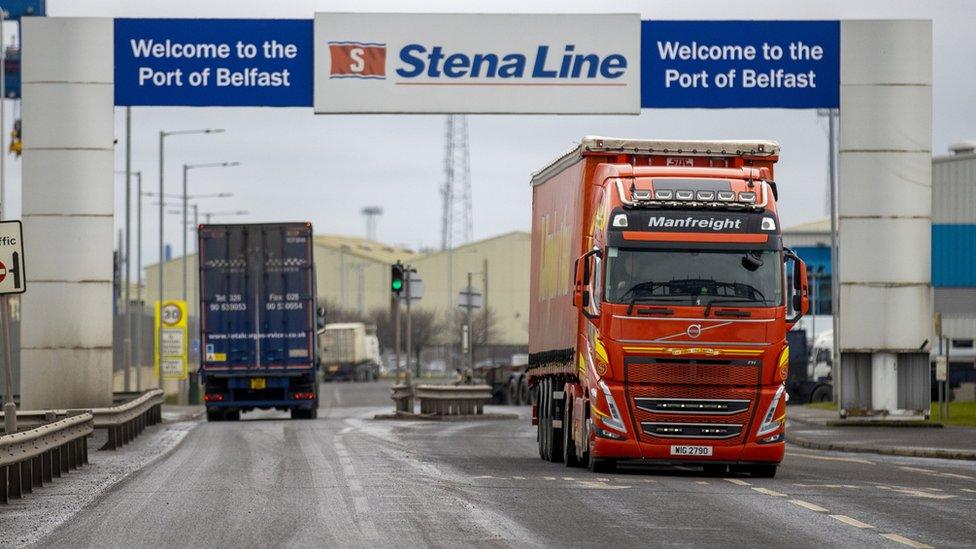NI Brexit deal: Number 10 says misunderstandings will be clarified
- Published
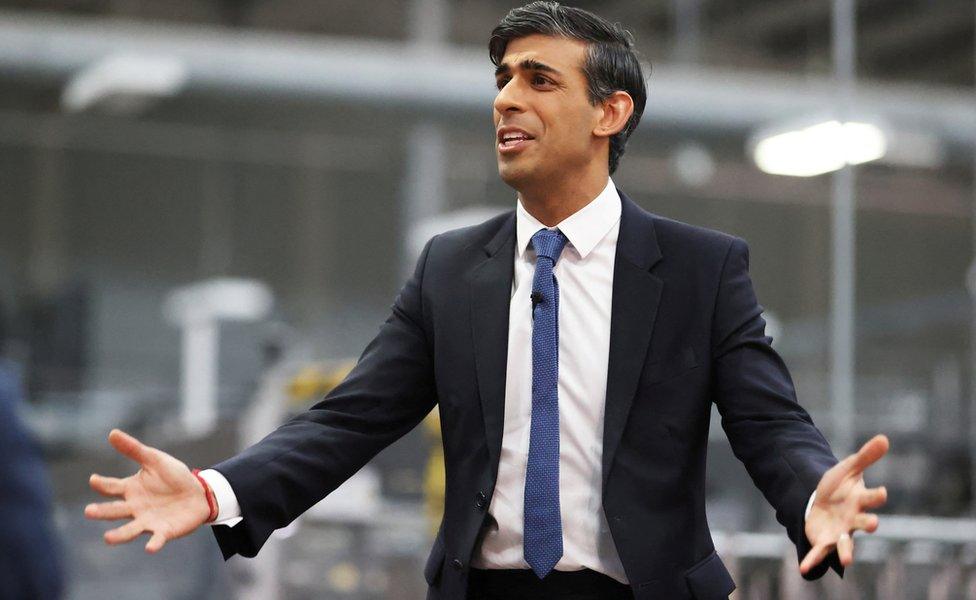
Rishi Sunak said the Windsor Framework would make Northern Ireland "the world's most exciting economic zone"
The prime minister is willing to clarify any "misunderstandings" about how the new Brexit deal for Northern Ireland will work, Downing Street has said.
The Windsor Framework was announced on Monday following months of talks.
Rishi Sunak's official spokesman said there were misunderstandings about it, but did not clarify what they were.
He said the government respected the need to give the Democratic Unionist Party (DUP) time to look at it.
Meanwhile former Prime Minister Boris Johnson criticised the deal.
Mr Johnson agreed the original post-Brexit arrangements for Northern Ireland back in 2019 - known as the NI Protocol - which created a trade border in the Irish Sea.
In a speech in London he said the new framework was "not about taking back control".
He said he would find it "very, very difficult" to vote for Mr Sunak's deal.
Boris Johnson says he hopes the DUP leader can "reconcile himself" to the new Brexit deal
The new Windsor Framework was signed to alter the protocol.
It will mean goods moving from Great Britain which are staying in Northern Ireland would use a 'green lane' at Northern Ireland ports, meaning they would face minimal paperwork and no routine physical checks.
Goods which are due to travel into the Republic of Ireland would use a 'red lane', meaning they face customs processes and other checks.
Northern Ireland Secretary Chris Heaton-Harris is to talk to Northern Ireland's main political parties in the days ahead to assess their reaction to the framework.
The DUP is boycotting Northern Ireland's devolved government at Stormont until its concerns about post-Brexit trading arrangements are addressed.
So far the party has not said if it will support the framework and that it will assess it against its "seven tests" before deciding what to do.
But on Wednesday night, one of its MPs, Ian Paisley, said he did not believe it met those tests.
Mr Paisley was speaking in his role as parliamentary chair of the think tank Centre for the Union.
It is a think tank which aims to promote the union of the United Kingdom through what it describes as "working across the political divide" and "putting forward coherent and convincing arguments".

More on new NI Brexit deal
AT-A-GLANCE: The keys points in the agreement
ANALYSIS: What the deal means for businesses
EXPLAINED: The Stormont brake and how it works
DUP DILEMMA: Stakes are high for unionist party

Mr Johnson directed some of his comments at the DUP leader during his speech.
"It's not for me to advise Sir Jeffrey. I hope he can find a way of reconciling himself and his party to this outcome and getting back into Stormont," he said.
"But I'm conscious - and I won't be thanked for saying this - we must be clear about what is really going on.
"This is not about taking back control - this is the EU graciously unbending to allow us to do what we want in our own country, not by our laws but by theirs."
On Thursday, David Campbell, chairman of the Loyalist Communities Council, said the prime minister had "mistakenly oversold" the deal.
He told BBC NI's The View he believed there had been some progress on trade issues within the UK.
"But in terms of the attempt by the prime minister to sell the ending of the Irish Sea border and the ending of essentially the sharing of European sovereignty in Northern Ireland, those simply have not been dealt with," he continued.
"I don't view the negotiations as over by any means."
Treasury Minister Andrew Griffith told a financial service conference in Germany that the Windsor Framework was "something many said couldn't be done, and shows what we can achieve when we put our minds together".
He said that as well as supporting trade between Great Britain and Northern Ireland, it offered "sustainable solution that will be in the UK's economic interest."
"In financial services, the Treasury stands ready to continue conversations with our European partners on enhancing regulatory cooperation," Mr Griffith added.
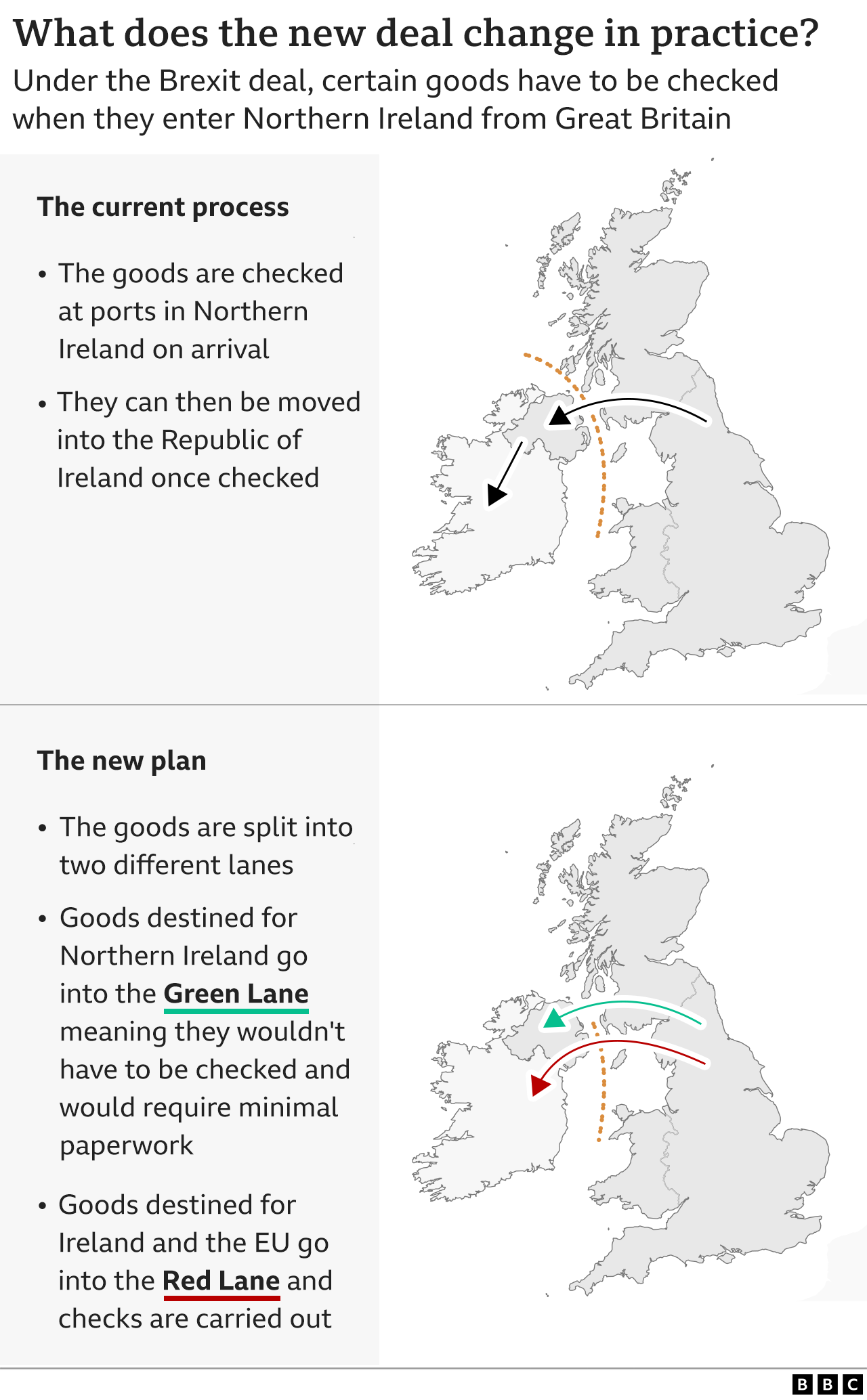
Related topics
- Published28 February 2023
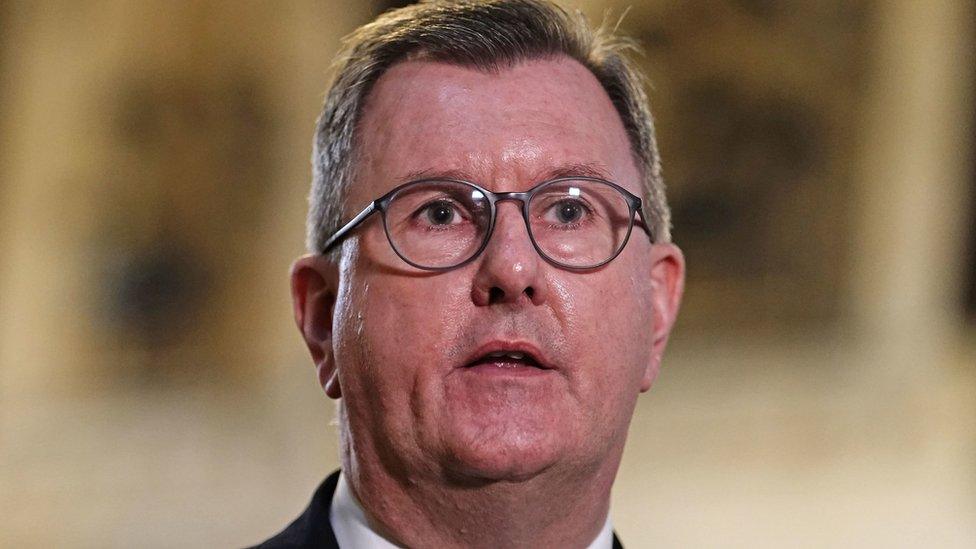
- Published28 February 2023
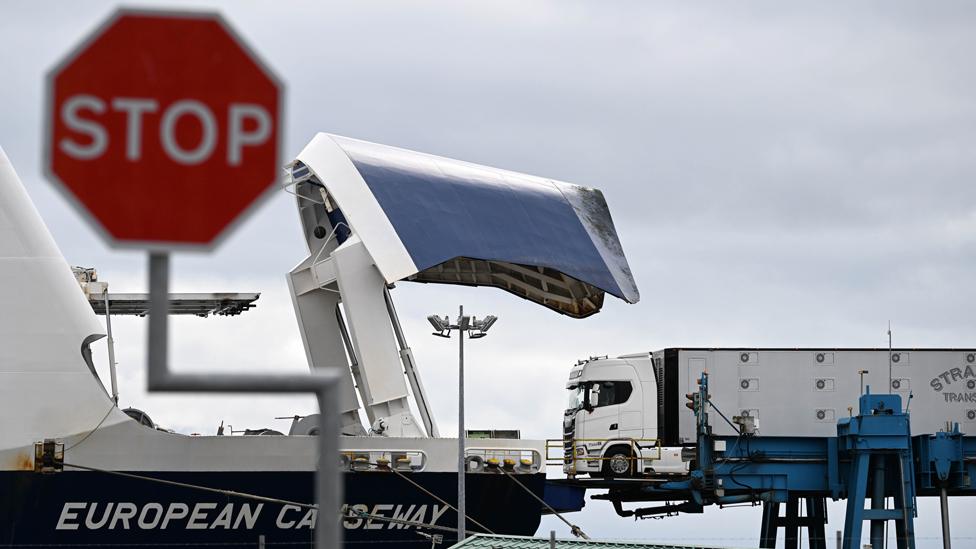
- Published27 February 2023
